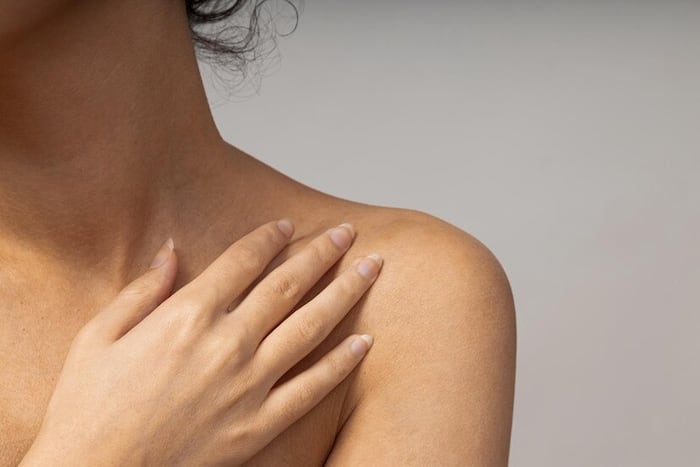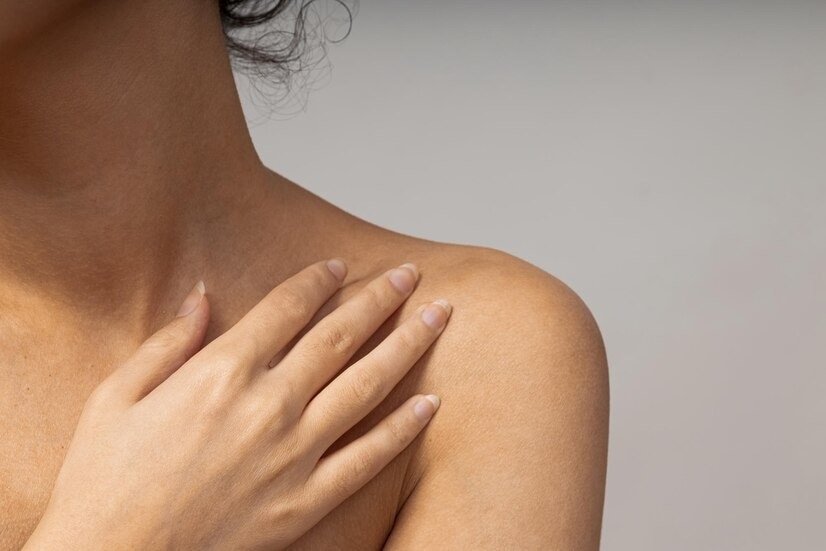Skin cancer is a serious condition that requires prompt treatment. Identifying early signs and taking appropriate precautions can greatly reduce your risk of the major illness.

Skin cancer is an abnormal growth of skin cells, which often develops on the skin that is exposed to harmful UV rays. It can initially develop in areas exposed to the sun and UV rays including your neck, ear, face, lips, chest, hands, and legs. Skin cancer can also develop around the areas where light rarely reaches- the palm of your hands, fingernails, or genital areas. It is a serious condition that affects almost millions of individuals worldwide. This is why individuals need to be aware of symptoms associated with skin cancer and immediately seek medical attention for prompt diagnosis.
Types of Skin Cancer
• Basal cell carcinoma (BCC)- Commonly develops on sun-exposed areas such as the face and neck and can appear like a lump, pearly, or flesh-colored bump.
• Squamous cell carcinoma (SCC)- It is usually not serious or life-threatening if given a prompt diagnosis. If left untreated, it can grow larger or spread throughout the body. Squamous cell carcinoma usually looks like a red patch, or wrath-like growth, open sores on the skin.
• Melanoma- Melanoma is the most serious type of skin cancer that develops in the melanocytes, a cell responsible for skin pigmentation. This cancer can develop anywhere on the body and is identified by abnormal growth of moles, with uneven color, and growing size.
Early Signs of Skin Cancer
Dr. Rinky Kapoor, Consultant Dermatologist, Cosmetic Dermatologist & Dermato-Surgeon, The Esthetic Clinics spoke to India.com and shared 5 major signs of skin cancer.
• New growth: Look for abnormal growth of new lumps, moles, bumps, or any spots on your skin. Immediately consult your doctor if you spot these abnormal growths as they can be early signs of skin cancer.
• Changes in the existing mole: If you already have an existing mole and start to notice constant changes in their size, shape, or even color, then it could be a sign of worry.
• Sores that don’t heal: Skin sores are a type of skin session just like ulcers. If you have skin sores that don’t heal even after weeks, then it might be a sign of skin cancer. These sores can be painful, ooze, and even bleed in some cases.
• Itching: Individuals are advised to consult experts if a mole or certain area on their skin suddenly starts to pain, itch, hurt, or get reddish due to constant rubbing.
• Reddish patches: These patches can appear anywhere on the skin including the face, chest, arms, or legs. They might be painful, itch, cause irritation, or not hurt at all.
Tips to Prevent Skin Cancer
• Always remember to apply a broad-spectrum sunscreen with an SPF of 30 or higher for better coverage and protection from harmful UV rays. Do not forget to a apply sunscreen on overlooked areas like the back of your neck, behind your ears, and feet to prevent your skin from tanning.
• Wear full-coverage clothes like full-sleeved shirts and long pants to safeguard your skin from sun damage.
• Avoid going outdoors especially from 9 am to 4 pm, as the sun rays are strongest during these hours which can further lead to various skin problems.
• Consult your dermatologist frequently and get checked frequently for any early detection of skin cancer or other skin-related diseases.
• Choose sunglasses or shades that provide 100% UVA protection.

